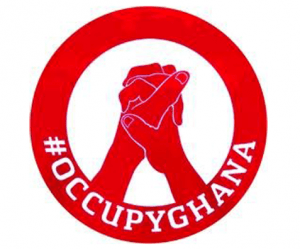Occupy Ghana opposes Interception of Postal Packets and Messages Bill
 The pressure group Occupy Ghana has kicked against the Interception of Postal Packets and Telecommunication Messages Bill.
The pressure group Occupy Ghana has kicked against the Interception of Postal Packets and Telecommunication Messages Bill.
In a letter to Parliament, the group outlined a number of reasons for their opposition to the bill and said it will make more detailed remarks later but wants the bill to be suspended for the mean time.
“We respectfully request of the august house of the Parliament of Ghana to suspend the passing of this Bill in its current state for better public and stakeholder engagements as well as ensuring the absolute integrity and competence of the parties or persons involved with the interception of messages and postal packets,” the letter said.
The bill according to Occupy Ghana, does not follow international legal best practices as it is not moderated by other related law, and must not be rushed to parliament considering its capacity to heavily intrude privacy, and the commercial implications thereof.
“Were its merits candid and open, enough airtime and town hall discussions must have ensued before our legislators consider it. As it is overly dangerous in its concept and affront to our liberties in practice, it must be sufficiently discussed not least three months before consideration by the House,” the letter said.
The group also argued that the sensitive bill is compromised from the onset as the National Security Coordinator who will be mandated to approve and request warrants for interception, is a handpicked appointee of the Executive who “cannot vouch for his unfettered neutrality and integrity.”
Occupy Ghana is also in opposition of mandating the National Security Coordinator to give oral authorization for the interception of postal packets and telecom messages before confirmation through the law court within 48 hours.
“This means that innocent Ghanaians can be monitored without any legal authorization by a court of law. We do not trust the discretion of an appointee not bound by any Investigatory Powers Act.”
The letter also said: “The purpose of the bill stated as ‘protecting national security, fighting crime generally and in particular suppressing organized crime including money laundering, terrorism, narcotic trafficking and other serious offences and for related matters’ is vague and ambiguous and leaves room for misinterpretation and abuse by the Executive.”
Occupy Ghana described as “preposterous and dangerous” the arrangement where the bill requires the Justice of the High Court to supervise implementation and compliance while submitting to the National Security Coordinator, who is also by the same Act, required to obtain an interception warrant from a Justice of the High Court.
The letter also argued that the authorized parties – providers of postal, cyber communications and telecommunications services – do not have the capacity to afford and manage the interception of messages and packets and to guarantee their security, and the bill does not specify who bears the cost.
By Emmanuel Odonkor
